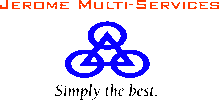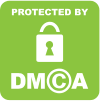Issue Number: IRS Special Edition Tax Tip 2014-16Inside This IssueGet Credit for Child and Dependent Care This Summer
Many parents pay for childcare or day camps in the summer while they work. If this applies to you, your costs may qualify for a federal tax credit that can lower your taxes. Here are 10 facts that you should know about the Child and Dependent Care Credit:
1. Your expenses must be for the care of one or more qualifying persons. Your dependent child or children under age 13 usually qualify. For more about this rule see Publication 503, Child and Dependent Care Expenses.
2. Your expenses for care must be work-related. This means that you must pay for the care so you can work or look for work. This rule also applies to your spouse if you file a joint return. Your spouse meets this rule during any month they are a full-time student. They also meet it if they’re physically or mentally incapable of self-care.
3. You must have earned income, such as from wages, salaries and tips. It also includes net earnings from self-employment. Your spouse must also have earned income if you file jointly. Your spouse is treated as having earned income for any month that they are a full-time student or incapable of self-care. This rule also applies to you if you file a joint return. Refer to Publication 503 for more details.
4. As a rule, if you’re married you must file a joint return to take the credit. But this rule doesn’t apply if you’re legally separated or if you and your spouse live apart.
5. You may qualify for the credit whether you pay for care at home, at a daycare facility or at a day camp.
6. The credit is a percentage of the qualified expenses you pay. It can be as much as 35 percent of your expenses, depending on your income.
7. The total expense that you can use for the credit in a year is limited. The limit is $3,000 for one qualifying person or $6,000 for two or more.
8. Overnight camp or summer school tutoring costs do not qualify. You can’t include the cost of care provided by your spouse or your child who is under age 19 at the end of the year. You also cannot count the cost of care given by a person you can claim as your dependent. Special rules apply if you get dependent care benefits from your employer.
9. Keep all your receipts and records. Make sure to note the name, address and Social Security number or employer identification number of the care provider. You must report this information when you claim the credit on your tax return.
10. Remember that this credit is not just a summer tax benefit. You may be able to claim it for care you pay for throughout the year.
For more on this topic, see Publication 503 on IRS.gov. You can also call 800-TAX-FORM (800-829-3676) to have it mailed to you.
Additional IRS Resources:
Many parents pay for childcare or day camps in the summer while they work. If this applies to you, your costs may qualify for a federal tax credit that can lower your taxes. Here are 10 facts that you should know about the Child and Dependent Care Credit:
1. Your expenses must be for the care of one or more qualifying persons. Your dependent child or children under age 13 usually qualify. For more about this rule see Publication 503, Child and Dependent Care Expenses.
2. Your expenses for care must be work-related. This means that you must pay for the care so you can work or look for work. This rule also applies to your spouse if you file a joint return. Your spouse meets this rule during any month they are a full-time student. They also meet it if they’re physically or mentally incapable of self-care.
3. You must have earned income, such as from wages, salaries and tips. It also includes net earnings from self-employment. Your spouse must also have earned income if you file jointly. Your spouse is treated as having earned income for any month that they are a full-time student or incapable of self-care. This rule also applies to you if you file a joint return. Refer to Publication 503 for more details.
4. As a rule, if you’re married you must file a joint return to take the credit. But this rule doesn’t apply if you’re legally separated or if you and your spouse live apart.
5. You may qualify for the credit whether you pay for care at home, at a daycare facility or at a day camp.
6. The credit is a percentage of the qualified expenses you pay. It can be as much as 35 percent of your expenses, depending on your income.
7. The total expense that you can use for the credit in a year is limited. The limit is $3,000 for one qualifying person or $6,000 for two or more.
8. Overnight camp or summer school tutoring costs do not qualify. You can’t include the cost of care provided by your spouse or your child who is under age 19 at the end of the year. You also cannot count the cost of care given by a person you can claim as your dependent. Special rules apply if you get dependent care benefits from your employer.
9. Keep all your receipts and records. Make sure to note the name, address and Social Security number or employer identification number of the care provider. You must report this information when you claim the credit on your tax return.
10. Remember that this credit is not just a summer tax benefit. You may be able to claim it for care you pay for throughout the year.
For more on this topic, see Publication 503 on IRS.gov. You can also call 800-TAX-FORM (800-829-3676) to have it mailed to you.
Additional IRS Resources:
- Tax Topic 602 - Child and Dependent Care Credit
- Frequently Asked Questions - Child Care Credit
- Publication 926, Household Employer's Tax Guide
- Publication 907, Tax Highlights for Persons With Disabilities

 RSS Feed
RSS Feed



